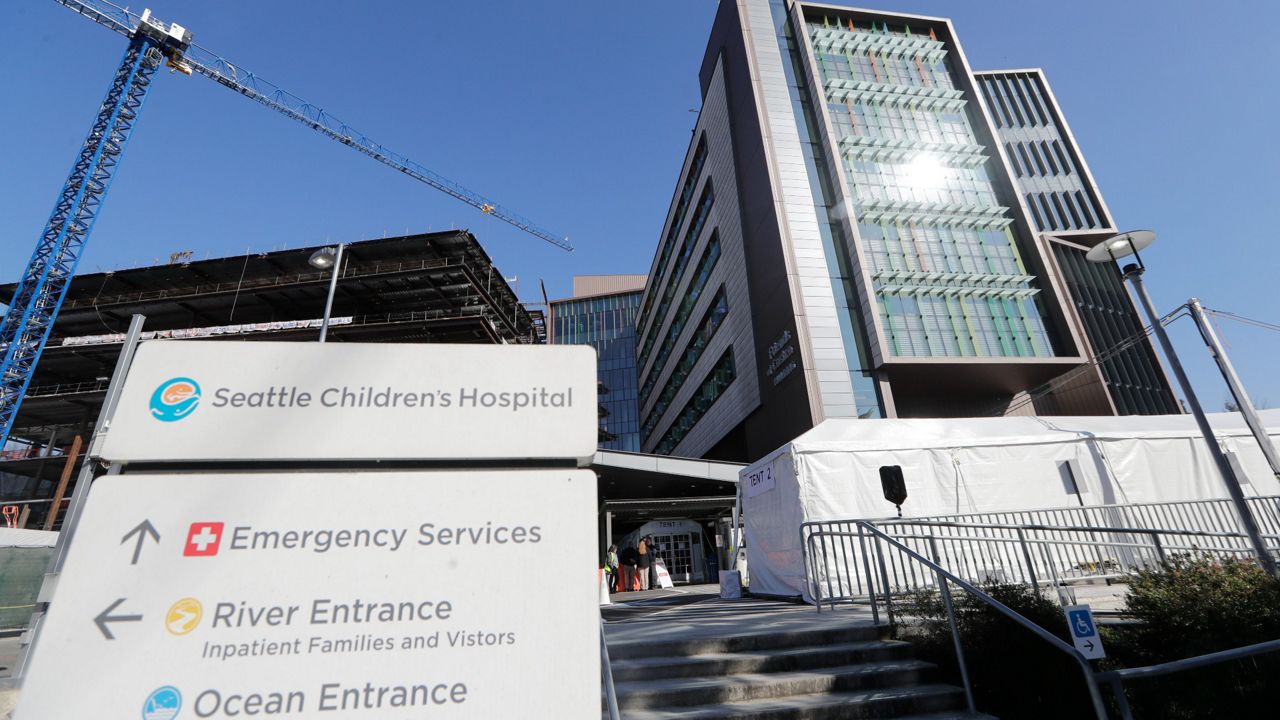The nation is experiencing an unseasonably early surge of respiratory syncytial virus cases, or RSV, among children, which is stressing hospitals.
What You Need To Know
- The nation is experiencing an unseasonably early surge of respiratory syncytial virus cases, or RSV, among children, which is stressing hospitals
- According to data CDC that represent only 9% of the population, there were more than 7,300 RSV cases the week of Oct. 15, more than double from a month earlier and the most seen in two years
- Meanwhile, about three-quarters of the nation’s pediatric hospital beds are filled — also a two-year high — according to the Department of Health and Human Services, although the department does not specify the reason
- Many doctors and health officials are attributing the spike in RSV cases to children being isolated during the COVID-19 pandemic and not being exposed to germs that help strengthen immune systems
According to data from the Centers for Disease Control and Prevention that represent only 9% of the population, there were more than 7,300 RSV cases the week of Oct. 15, more than double from a month earlier and the most seen in two years. Meanwhile, about three-quarters of the nation’s pediatric hospital beds are filled — also a two-year high — according to the Department of Health and Human Services, although the department does not specify the reason.
RSV is a common virus that usually causes mild, cold-like symptoms. Most people recover in a week or two, but the virus can cause serious illness, especially in infants, other young children and older adults. According to the CDC, the virus kills 100 to 300 children ages 5 and younger and hospitalizes more than 58,000 kids in that age group each year.
Typically, RSV infections peak late in the winter, but already this year, according to various media reports:
- Connecticut Children's Medical Center in Hartford is so overwhelmed it is considering calling in the National Guard and Federal Emergency Management Agency to build a field hospital outside its main facility. “I’ve been doing this for a long time, I’ve been at Connecticut Children’s for 25 years, and I have never seen this level of surge – specifically of RSV – coming into our hospital,” Dr. Juan Salazar, executive vice president and physician-in-chief, told CNN.
- Children's Healthcare of Atlanta erected an emergency room surge tent in August to handle a flood of respiratory illness cases, including RSV.
- Children's hospitals in the Washington, D.C., and Baltimore areas are at or near capacity.
- Dr. Russell Migita with Seattle Children's Hospital said his hospital is seeing “unprecedented volumes” of RSV cases.
- And at Cook Children’s Medical Center in Fort Worth, Texas, doctors say each day they’re treating about 300 RSV patients, who are occupying nearly half of its intensive care beds.
Many doctors and health officials are attributing the spike in RSV cases to children being isolated during the COVID-19 pandemic and not being exposed to germs that help strengthen immune systems.
"Kids who are 3 now didn't get sick their first winter. The kids who are 2 didn't get sick their first winter. The kids who are 1 are just now getting sick when they're supposed to get sick, so there are three years of cohort of kids who have no built-up immunity of prior infection immunity and they're all getting sick at once," Dr. Scott Krugman, vice chair of pediatrics at Sinai Hospital, told WBAL-TV in Baltimore.
While children who are being infected in day care centers or schools may only develop a mild case, they can bring the virus home and infect others who are more vulnerable.
For example, Stephen Balka told CNN his 4-year-old daughter, Trinity, caught RSV first and days later his 2-month-old son, Adrian, was infected also. Trinity has recovered, but Adrian has been hospitalized in the ICU at Texas Children’s Hospital in Houston for the past week.
While the focus has largely been on children, RSV also can be dangerous for older adults, causing 14,000 deaths and 177,000 hospitalizations annually among Americans ages 65 and older, according to the CDC.
RSV symptoms include runny nose, a decrease in appetite, coughing, sneezing, fever and wheezing. It can be difficult to distinguish RSV symptoms from cold symptoms.
The virus can be spread when an infected person coughs or sneezes and virus droplets get into someone’s eyes, nose or mouth; when someone touches a surface that has the virus on it and then touches their face before washing their hands; and when there is direct contact with the virus, such as when someone kisses the face of an infected child.
There is no vaccine for the virus, although there is a preventative drug given to high-risk babies during RSV season.
Experts recommend good hygiene to help prevent contracting and spreading RSV, including by:
- Washing hands often and keeping hands away from your face.
- Covering coughs and sneezes.
- Cleaning and disinfecting surfaces.
- Staying home when feeling ill.



